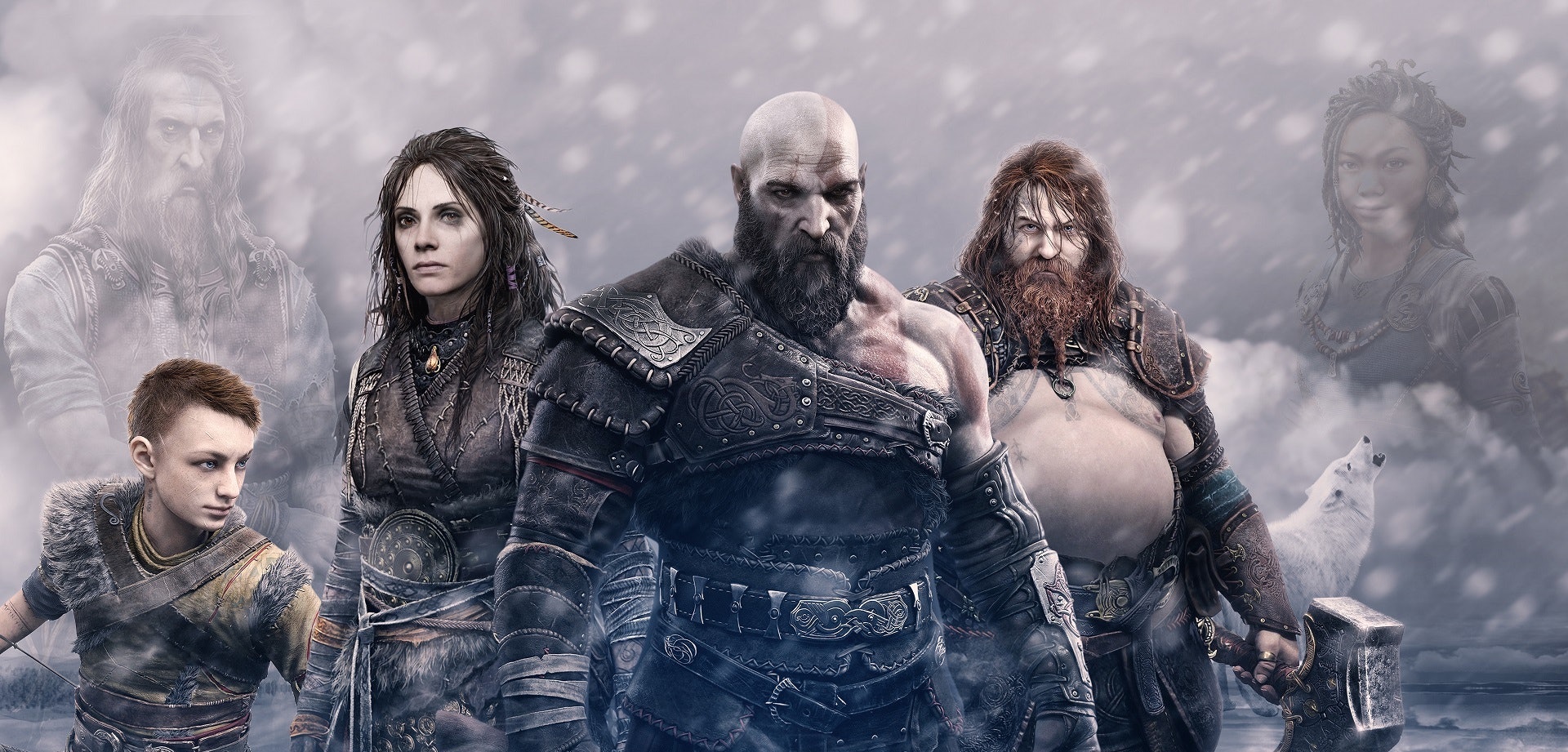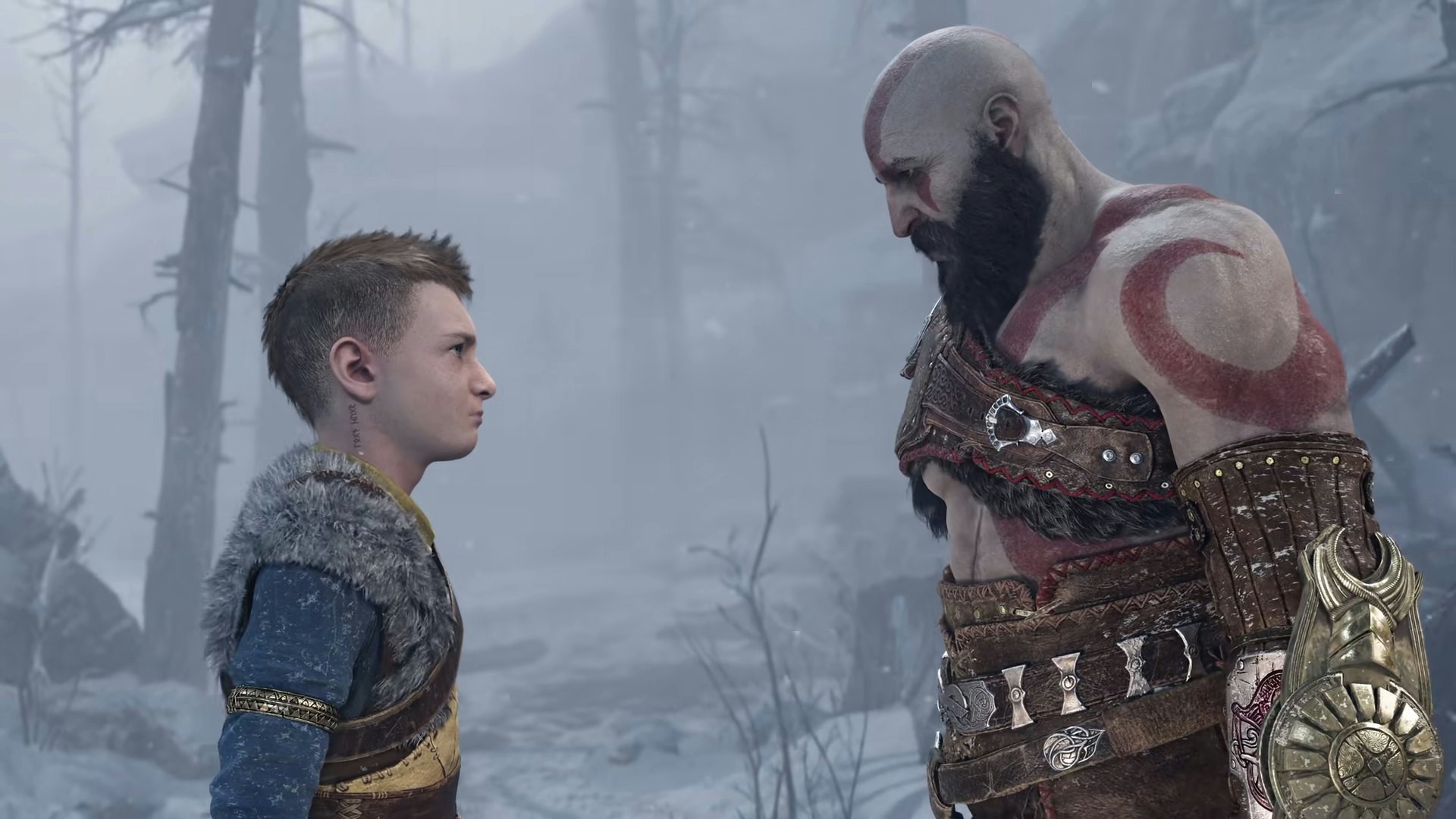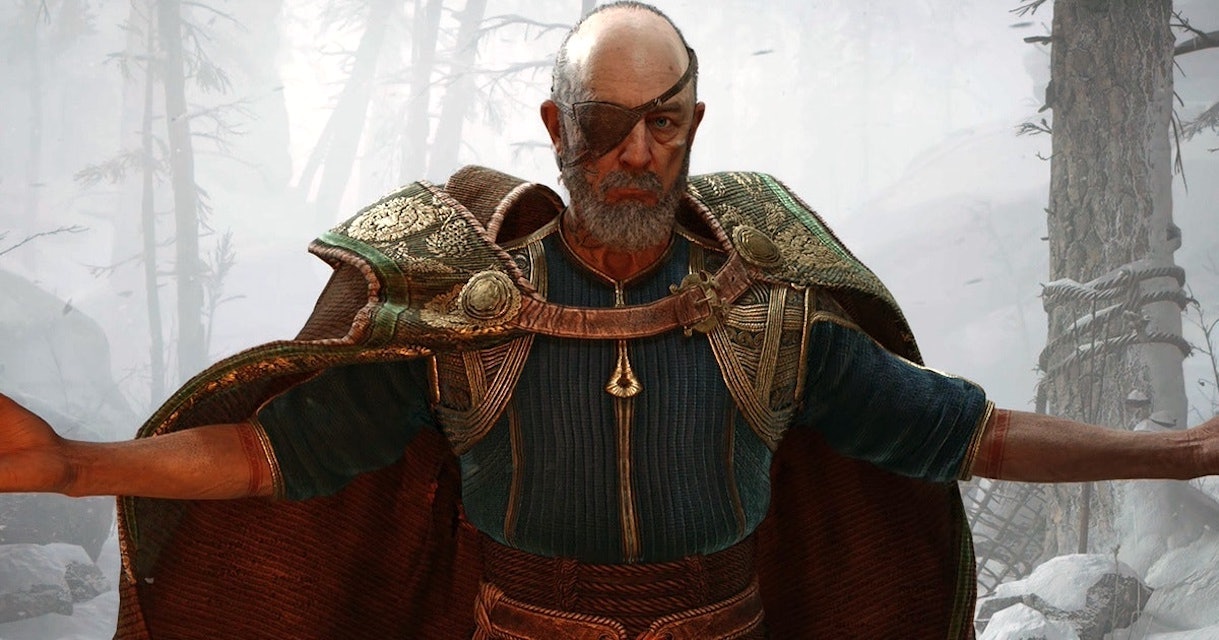
The long-awaited return of Kratos is finally here. God of War Ragnarok follows up after the harrowing events of the franchise’s 2018 soft reboot, delivering an epic sequel that stumbles at points. Any kind of sequel is hard to pull off, but Ragnarok provides a bigger and grander experience than its predecessor while retaining exceptional combat. Yet in the pursuit of delivering such a bombastic and epic experience, developer Sony Santa Monica loses focus on what made the previous game so compelling. Bigger is not always better, and ignoring that obvious truth means that Ragnarok is missing a key part of the 2018 game’s success: the relatable simplicity of the story.
Warning: mild spoilers ahead for God of War Ragnarok.

Father and Son — The biggest question about God of War (2018) before it was released was how could a franchise so rooted in the best and worst aspects of 2000s gaming be meaningfully reinvented. The answer was restraint.
God of War’s story can be summed up in one sentence: Kratos and his son Atreus face numerous obstacles on their journey to bring his wife's ashes to the highest mountain in the nine realms.
That’s really it.
It is a story about a father and a son struggling to define their relationship in the absence of the woman who kept them together. Over the nearly 20 hours of their adventure, Kratos and Atreus are joined by a relatively sparse cast. Baldur, Freya, Mimir, Brok, and Sindri are the only other people who you interact with for extended periods of time.
The narrative is solely interested in investigating Atreus and Kratos’ relationship, as well as characterizing Kratos as a person who has grown from the original trilogy.
In God of War Ragnarok, everything is bigger. It will take you longer to beat, there are more side quests to consider, and you’ll have to rip apart even more big bosses. Yet one of the aspects of the game that has exponentially expanded since 2018 is the cast of characters.
Whereas God of War (2018) was a story of father and son, Ragnarok is a story of conflict at a grand scale and mythical figures building armies. This requires a larger cast. Along their journey, the two now meet numerous gods, demi-gods, and monsters whose names might sound familiar if you’ve watched a Thor movie. These additions enter the story fast and they don’t let up.

Lost in the crowd — To the credit of the cast, nearly every performance is masterful. Christopher Judge and Sunny Suljic still have an incredible dynamic as Kratos and Atreus, respectively. New additions to the cast also stun, such as the introduction of Thor or the scene-stealing performance from Richard Schiff as Odin.
But for every addition that feels meaningful, there is a handful that seems meaningless. Characters will appear, unload their sob-worthy story in a few minutes, and then exit the story never to be seen again. The nonstop push of the story towards bigger fights and more drastic stakes is a cacophonous adventure filled with the sound of a dozen new voices that never stop talking.
God of War Ragnarok becomes a bombastic ensemble epic, but this loses the heart of what made God of War great. The often silent relationship between Kratos and Atreus spoke volumes about masculinity, vulnerability, and intimacy. The grandeur of Kratos’ mission to take down Odin feels more in line with the character we know in God of War III than the one from the game immediately preceding Ragnarok.
By the end of Ragnarok, players encounter so many characters with their own motivations and side stories that it feels like too much of a good thing. Characters mostly have similar stories to tell, all of them appropriately gloomy for the sad dad game.
The result of so many characters (even with fantastic performances) is that the story of Kratos and Atreus gets minimized. Ragnarok instead prioritizes the grand scale of this mystical world and the wide cast within it. In telling this conclusion to Kratos’ Norse saga, Sony Santa Monica forgot how important restraint was in making God of War (2018) such a compelling masterpiece.







